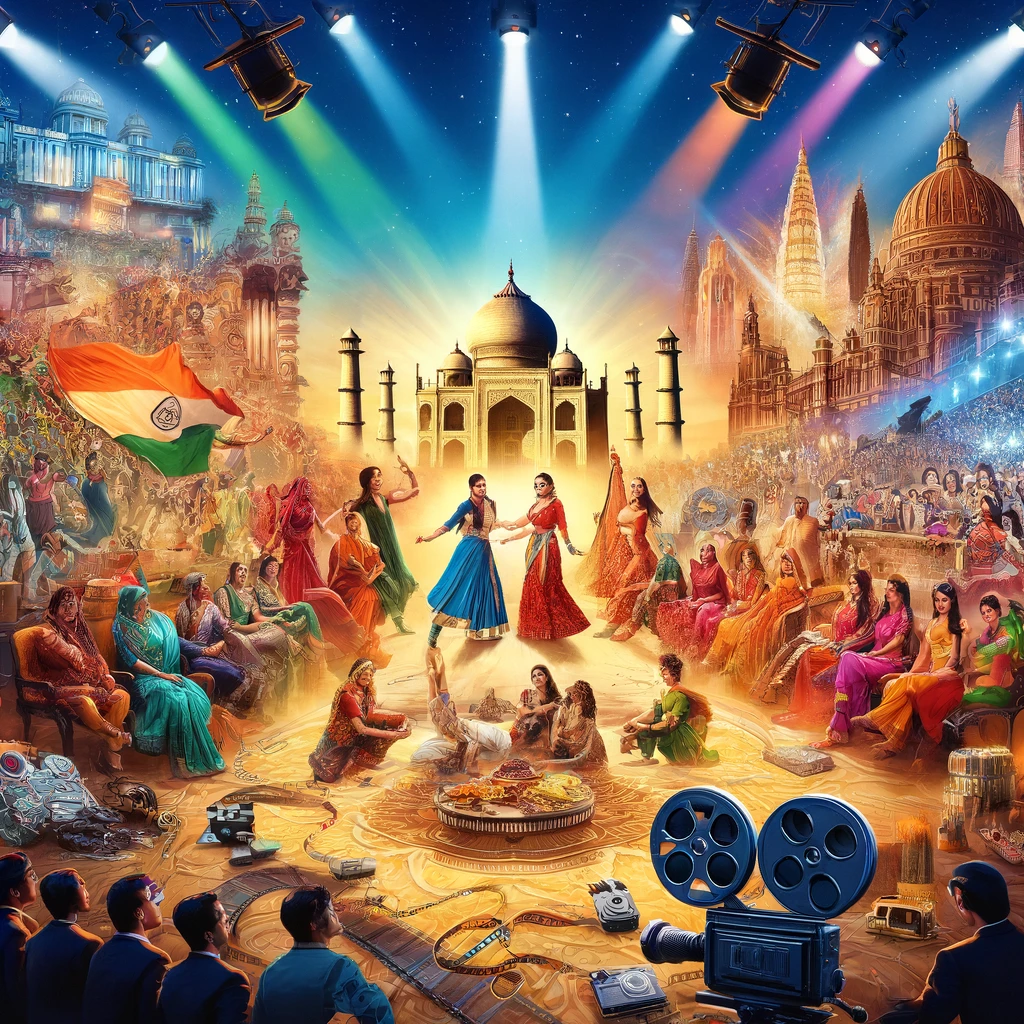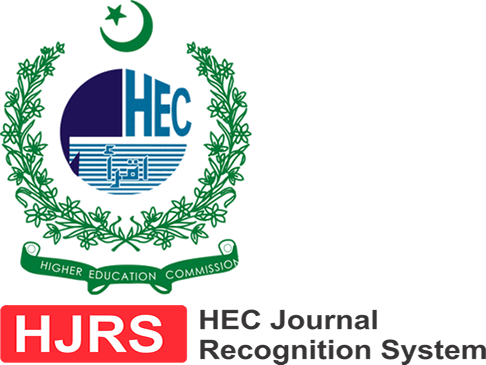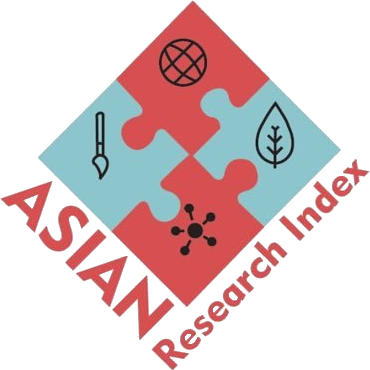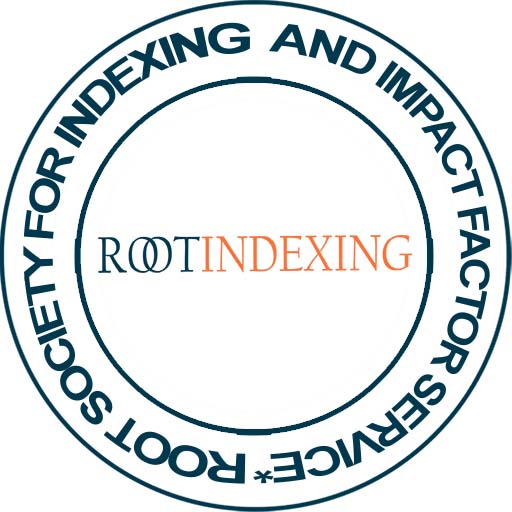CULTURAL EFFECTS AND MUSLIM IDENTITY: AN ANALYSIS OF BOLLYWOOD CINEMATIC REELS AND ITS IMPACTS ON PAKISTANI SOCIETY, CIVILIZATION AND ETHOS
DOI:
https://doi.org/10.5281/zenodo.13351557Keywords:
Bollywood Cinema – Pakistani Society – Negative Impacts – Critical AnalysisAbstract
Culture is a person's or a nation's identity. The foundation of our culture is Islam, and Pakistani culture is built on this faith. The current study examines how Indian films influence Pakistani youth culture and how Indian cinema presents Muslims. Indian films are well-liked in Pakistan, particularly among young people, and have a significant impact on Pakistani youth. This research examined the linguistic, musical, and fashion preferences, as well as the marital practices of Pakistani viewers of Bollywood films, as a result of their Bollywood film consumption. Muslims have been inaccurately represented in Hindi films as non-modern feudal characters, terrorists, anti-national, villains, or anti-social characters, among other stereotypes based on their own mythology. Furthermore, the issue of the disappearing Muslim is particularly problematic in this liberalizing and globalizing age since there aren't many movies featuring Muslims as the main characters, even if there are a lot of Muslims who act both on and off screen. These films have a history of severely and heavily misrepresenting Muslims, and this has happened over time. Following the 26/11 assaults in Mumbai, there has been a noticeable increase in the unfavorable representation of Muslims in these films. This paper investigates, Bollywood now often depicts non-Indian Muslims negatively, and occasionally even Indian Muslims negatively affect society. Muslims are frequently depicted as being untrustworthy, hostile, nasty, malevolent, terrorist, and anti-national in nature.
References
Yong Yun Kim, ‘’Toward an Interactive Theory of Communication-Acculturation’’. Annals of the International Communication Association, 3 no. 3, (1987): 435-453. https://doi.org/10.1080/23808985.1979.11923776
J. W. Berry, ‘’A Psychology of Immigration’’. Journal of Social Issues, 57(3) (2001): 615631. https://doi.org/10.1111/0022-4537.00231
Collen Ward et al, ‘’The Psychology of Culture Shock (2nd ed.). (New York: Routledge, 2001).. http://dx.doi.org/10.4324/9781003070696
J. W. Berry, ‘’A Psychology of Immigration’’. Journal of Social Issues, 57(3), 615631. https://doi.org/10.1111/0022-4537.00231
Yong Yun Kim, ‘’Toward an Interactive Theory of Communication-Acculturation’’. Annals of the International Communication Association, 3 Vol. 3, pp. 435-453. https://doi.org/10.1080/23808985.1979.11923776
Muhammad Asad Latif and Dr. Mahmood Ahmad, Screening Jesus of Western (Peace be Upon Him): Parables and Historical Relation with Mary Magdalene (A Critical Analysis of Christian Thinking). Jihat ul Islam, 16 (21) (2022): 33-48. https://doi.org/10.51506/jihat-ul-islam.v16i1.411
Muhammad Asad Latif, Anthropomorphic of Gods With Allah Almighty and Filmography on Islamophobia in the Cinematic Way of American and India: A Critical Analysis. Hamdard Islamicus, XLVI (3) (2023): 49-72. https://doi.org/10.57144/hi.v46i3.756
Ibid.
M. Kripalani, The Business of Bollywood. In A. Ayres & P. Oldenburg (Eds.), India Briefing: Takeoff at Last? (Vol. 4, pp. 171-188). (New York: M.E. Sharpe, 2005).
Nadeem F. Paracha, ‘’New-Wave of Pakistani Cinema: Zinda and Kicking’’. Dawn News, Last Modified 04.03.2024 https://www.dawn.com/news/1045365
Muhammad Asad Latif, ‘’ Politics of East India Company on the Indo-Pak Subcontinent: A Critical Analysis in the Outlook of Subcontinent Writers’’. Islamic History and Literature, 2, no. 1, (2024): 40-50. http://jomardpublishing.com/UploadFiles/Files/journals/IHL/V2N1/MuhammadAL.pdf
F. Dalisay, ‘’Media Use and Acculturation of New Immigrants in the United States’’. Communication Research Reports, 29, no. 2, (2012): 148-160. ; Cong Li and Wanhsiu Sonny Tsai, Social Media Usage and Acculturation: A Test with Hispanics in the U.S. Computers in Human Behavior, 45, (2015): 204-212. ; Priya Raman and Jake Harwood, ‘’Acculturation of Asian Indian Sojourners in America: Application of the Cultivation Framework’’. Southern Communication Journal, 73, no. 4, (2008): 295-311.
G. M Ferguson et al, Remote Acculturation: Conceptualization, Measurement, and Implications for Health Outcomes. In S. J. Schwartz & J. B. Unger (Eds.), The Oxford Handbook of Acculturation and Health (pp. 157-173). (New York: Oxford University Press, 2017).
Silvia Chen, et al. ‘’Bicultural Identity, Bilingualism, and Psychological Adjustment in Multicultural Societies: Immigration‐Based and Globalization‐Based Acculturation’’. Journal of Personality, 76, no. 4, (2008):, 803-838.
Violet Cheung-Blunden and Linda Juang, ‘’Expanding Acculturation Theory: Are Acculturation Models and the Adaptiveness of Acculturation Strategies Generalizable in a Colonial Context’’? International Journal of Behavioral Development, 32, no. 1, (2008):, 21-33
N. Bhattacharya, ‘’A ‘Basement’ Cinephilia. Indian Diaspora Women Watch Bollywood’’. South Asian Popular Culture, 2, no. 2, (2014): 161-183.
Amandeep Takhar and David P. Chitakunye, ‘’Bollywood: A ‘Consumer Reacculturation Agent’’. In R. Ahluwalia, T. L. Chartrand, & R. K. Ratner (Eds.), NA - Advances in Consumer Research (Vol. 39, pp. 695-696). (Duluth: Association for Consumer Research.
Rajesh K. Pillania, ‘’The Globalization of Indian Hindi Movie Industry’’. Management (18544223) 3, no. 2 (2008).
Yamini Lohia, ‘’Anandam P. Kavoori and Aswin Punathambekar (Eds.): Global Bollywood’’. International Journal of Communication 4 (2010): 3. https://ijoc.org/index.php/ijoc/article/view/957/483
Michelle Aguayo, ‘’Representations of Muslim bodies in the Kingdom: Deconstructing discourses in Hollywood’’. Global Media Journal 2, no. 2 (2009): 41-56
Fareed kazmi and Sanjeev Kumar, ‘’The Politics of Muslim Identity and the Nature of Public Imagination in India: Media and Films as Potential Determinants’’. European Journal of Economic and Political Studies 4, no. 1 (2011): 171-187
S J. Moon and C. Y. Park, ‘’Media Effects on Acculturation and Biculturalism: A Case Study of Korean Immigrants in Los Angeles' Koreatown’’. Mass Communication and Society, 10, no. 3, (2007): 319-343.
G Gerbner, ‘’Epilogue: Advancing on the Path of Righteousness (Maybe). In N. Signorielli & M. Morgan (Eds.), Cultivation Analysis: New Directions in Media Effects Research (pp. 249-262). (Thousand Oaks: Sage, 1990).
J. H. Schumann, Research on the Acculturation Model for Second Language Acquisition. Journal of Multilingual & Multicultural Development, 7, no. 5, (1986): 379-392.
Shakuntala Rao, ‘’The globalization of Bollywood: An ethnography of non-elite audiences in India’’. The Communication Review 10, no. 1 (2007): 57-76.
Muhammad Ashraf Khan and Syeda Zuria Bokhari. ‘’Portrayal of Muslims in Indian Cinema: A Content Analysis of Movies during (2002-8)’’. Pakistan Journal of Islamic Research 8 (2011): 1-15.
Sabina Yeasmin, and Ferdousour Rahman Khan, ‘’Triangulation ‘research method as the tool of social science research’’. BUP journal 1, no. 1 (2013): 154-163.
Holli A Semetko and Patti M. Valkenburg, ‘’Framing European politics: A content analysis of press and television news’’. Journal of communication 50, no. 2 (2000): 93-109
Muhammad Ashraf Khan and Syeda Zuria Bokhari. ‘’Portrayal of Muslims in Indian Cinema: A Content Analysis of Movies during (2002-8)’’. Pakistan Journal of Islamic Research 8 (2011): 1-15.
Maidul Islam, ‘’Imagining Indian Muslims: Looking through the Lens of Bollywood Cinema’’. Indian Journal of Human Development 1, no. 2 (2007): 403-422.
Muhammad Asad Latif, ‘’Anthropomorphic of Gods With Allah Almighty and Filmography on Islamophobia in the Cinematic Way of American and India: A Critical Analysis’’. Hamdard Islamicus, XLVI, no, 3 (2023): 49-72. https://doi.org/10.57144/hi.v46i3.756

Downloads
Published
How to Cite
License
Copyright (c) 2024 AL MISBAH RESEARCH JOURNAL

This work is licensed under a Creative Commons Attribution 4.0 International License.
AL-MISBAH Research Journal is full open access and licensed under Creative Commons Attribution 4.0 International License; and Published by: Research Institute of Culture & Ideology (REINCI), Islamabad, Pakistan. This allows the research community and the general public to gain unlimited, free and immediate access to scholarly articles, and to reuse the content freely provided that proper attribution is given to the original authors.









